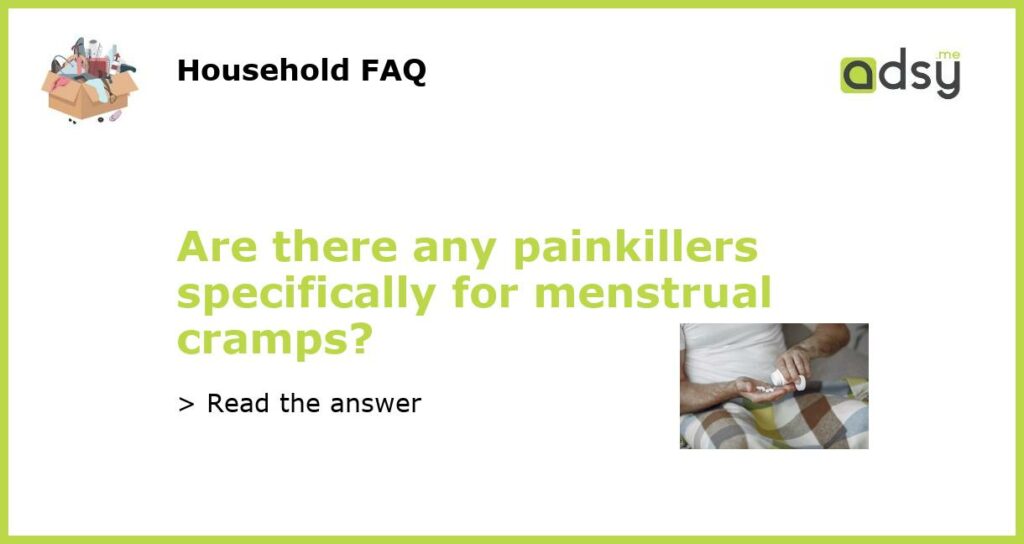Understanding Menstrual Cramps
Menstrual cramps, also known as dysmenorrhea, are a common complaint among women during their menstrual cycles. These cramps typically occur just before or during the menstrual period and can vary in severity from mild to severe.
The exact cause of menstrual cramps is not fully understood, but it is believed to be related to the release of hormones called prostaglandins. Prostaglandins cause the uterus to contract, which can lead to cramping and pain. Other factors that can contribute to menstrual cramps include hormonal imbalances, underlying medical conditions, and lifestyle factors such as stress and lack of exercise.
Over-the-Counter Options
For mild to moderate menstrual cramps, over-the-counter painkillers can often provide relief. Nonsteroidal anti-inflammatory drugs (NSAIDs) are the most commonly recommended painkillers for menstrual cramps. These medications work by reducing the production of prostaglandins, thereby alleviating cramping and pain.
Common over-the-counter NSAIDs that can be used for menstrual cramps include ibuprofen, naproxen sodium, and aspirin. These medications are typically available in various forms, such as tablets, capsules, and liquids, and can be purchased without a prescription from most pharmacies and supermarkets.
Prescription Medications
In some cases, over-the-counter painkillers may not provide adequate relief for severe menstrual cramps. In such situations, a healthcare provider may prescribe stronger medications to help manage the pain.
One medication commonly prescribed for menstrual cramps is a type of NSAID called mefenamic acid. This medication is specifically indicated for the treatment of primary dysmenorrhea (menstrual cramps without an underlying medical condition). Mefenamic acid can help reduce the severity of cramps and shorten the duration of menstrual bleeding.
Other prescription options for menstrual cramp pain relief include hormonal contraceptives, such as birth control pills, patches, or rings. These medications work by regulating hormone levels and can help reduce the intensity of menstrual cramps. However, it is important to note that hormonal contraceptives may not be suitable for everyone and should be discussed with a healthcare provider.
Alternative Remedies
In addition to medication, there are several alternative remedies that may help alleviate menstrual cramps. These remedies are often used in combination with painkillers or as a standalone option for those who prefer natural alternatives.
Some popular alternative remedies for menstrual cramps include:
- Heat therapy: Applying a heating pad or taking a warm bath can help relax the muscles and reduce cramping.
- Exercise: Engaging in light exercise, such as walking or yoga, can help increase blood flow and relieve cramps.
- Herbal supplements: Certain herbs, such as ginger and chamomile, have natural anti-inflammatory properties and may help reduce menstrual cramps.
- Acupuncture: This traditional Chinese medicine practice involves the insertion of thin needles into specific points on the body to help alleviate pain and promote overall well-being.
Consultation with a Healthcare Provider
If you are experiencing severe menstrual cramps that do not respond to over-the-counter painkillers or alternative remedies, it is important to consult with a healthcare provider. They can help determine the underlying cause of your cramps and recommend appropriate treatment options.
It is worth noting that some medical conditions, such as endometriosis or uterine fibroids, can cause severe menstrual cramps. In such cases, additional interventions may be necessary, such as hormonal therapies or surgery.
Remember, everyone’s experience with menstrual cramps is unique, and what works for one person may not work for another. Finding the right pain relief option may involve some trial and error, but with the guidance of a healthcare provider, relief is possible.






